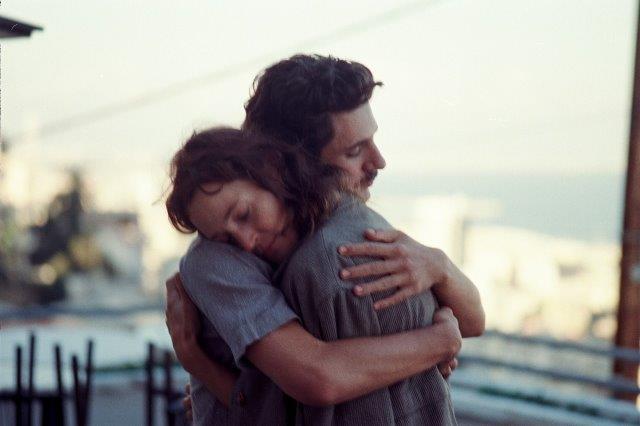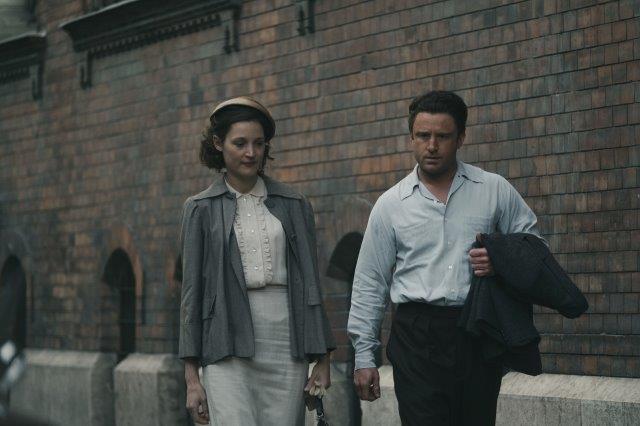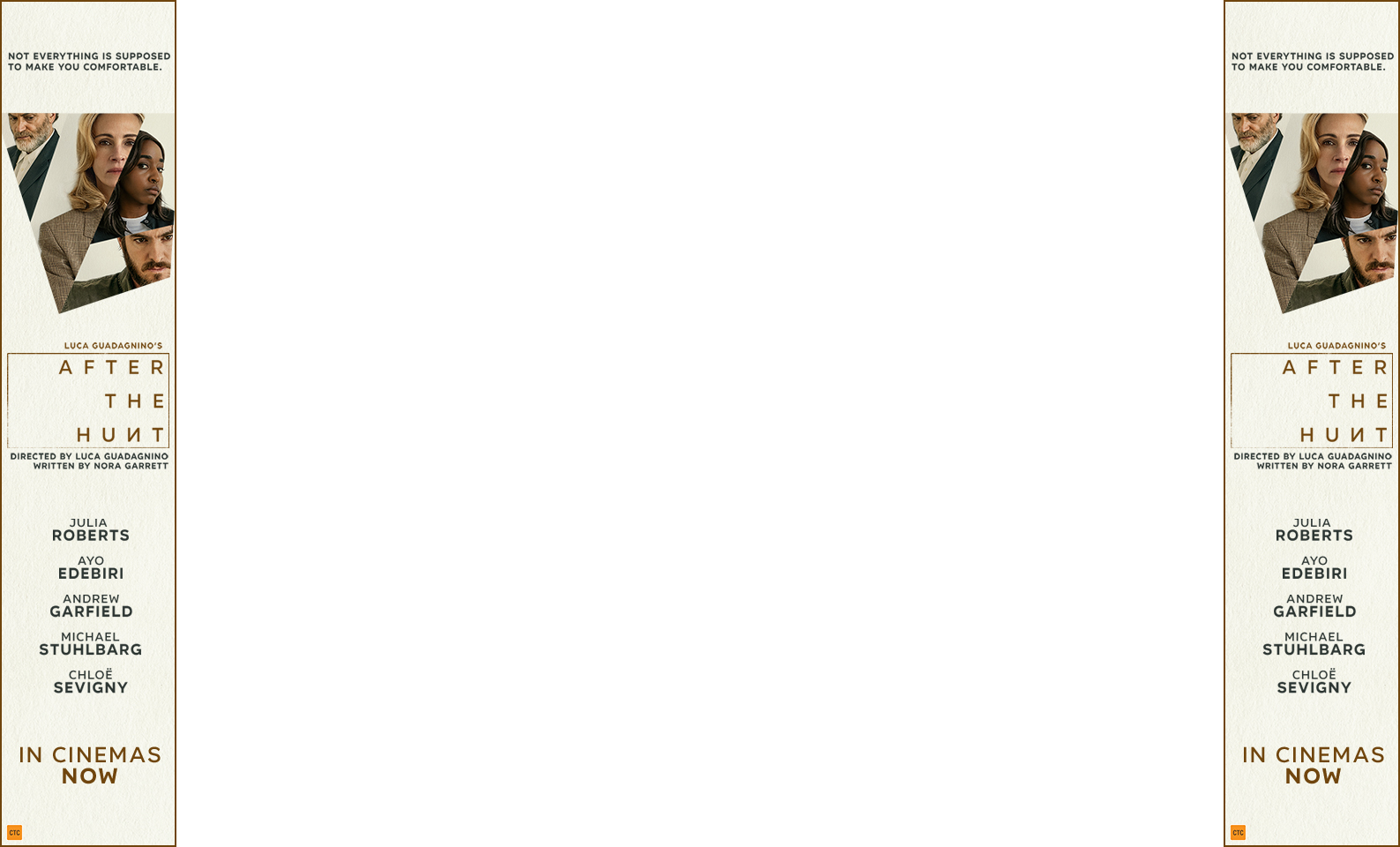By Helen Barlow
When she’s not on set filming M. Night Shyamalan’s Old in the Dominican Republic alongside a slew of Antipodean women (Aussies Abbey Lee and Eliza Scanlen and Kiwi Thomasin McKenzie), Vicky Krieps is mostly confined to her hotel room. Naturally, the Luxembourgian actress who shot to fame as Daniel Day-Lewis’s co-star in Paul Thomas Anderson’s Phantom Thread was unable to attend the world premiere of her latest heart-wrenching film, Helier Cisterne’s Faithful (De nos freres blesses) at The Rome Film Festival, so we spoke on the phone.
She explains how her family of left-wing activists influenced her decision to film the true 1950s Algeria-set story. It follows a young working class man, Fernand Iveton (Vincent Lacoste) who was guillotined after planting a low-powered bomb that failed to ignite in the middle of the night, so there would have been no casualties involved. Krieps plays his wife Helene.
In our expansive interview, the 37 year-old, who looks much younger and is a kind of chameleon with her ability to inhabit different characters, explains how she really has to come to Australia given her love of nature, that she has also worked with Mia Wasikowska on Mia Hansen-Love’s Bergman Island and how an astrologer once told her Australia was big in her future.
How is it working with Abbey and Eliza?
We get along great. It could be the opposite since I come from a very small country and they come from a big country, but it feels like we all come from the countryside in a way.
Are you filming in a jungle?
It’s all outdoors.
You’ve been very busy and have so many films coming out. You seem to be able to be diverse in so many different roles.
Yes, it’s to a point where people never recognise me. That’s actually quite nice, because then I get to do my job almost anonymously.

You came out of nowhere with Phantom Thread in a big role with a major director in the final film of Daniel Day-Lewis.
It was an amazing experience.
How was it to suddenly become famous?
It was very tough. I think everyone who’s experienced it says the same. I once read a great Bill Murray quote where he said that every person who this happens to, you have to grant them one asshole year! (Laughs) I did not become an asshole, but I also have children. I had one year when I was very lost, so my reaction was to go and live in Berlin and take a distance from what had happened, almost as if it hadn’t happened. I couldn’t accept it at first; it took almost two years to sink in.

Vincent Lacoste (who at 27 is a decade younger) is known for comedy so it’s interesting to see him in this serious traumatic role in Faithful.
It’s beautiful. I loved working with him. I know he’s perceived as this comedy guy and beforehand I thought, “Oh no, he is going to be in serious role” – and I’d just come from Daniel Day-Lewis, who is the most serious person you could probably ever work with in your life. In the beginning, we were feeling our way. I wouldn’t call it a clash; we are just very different in the way we work. Vincent was very open and funny, and he would always have his phone until shortly before the take. I started to influence him, inviting him to stay in the zone between takes. With true stories there are important things going on every day in the plot, and I like to think of it as paying respect to people. Then he raised the bar, and I was crying for him. Acting is teamwork.
Your grandfather was very political. How about the rest of your family?
My dad never really worked in the socialist party but was always somehow connected to it. My uncle worked actively in the party, so it was always a big topic in our family.
What position did your grandfather hold when he stopped the death penalty in Luxembourg?
He was the Minister of Culture, then the Minister of Justice and in the latter role, besides abolishing the death penalty, he legalised abortion and also put in place protection for monuments. He was in a concentration camp, so he had this fire. He was unstoppable because of what he’d seen.
Was he Jewish?
No, just from a young age he was quite political, a socialist. When he was 19, they took him, and he went straight to the concentration camp throughout the war for four years and in the end, he was in Dachau. He really saw horror, so this explains why he was this man who did all these things. He was really, really mad and he wanted the world to change.
Is that why you wanted to do the movie?
Yes, it always follows me around. I also did The Young Karl Marx because of my grandfather (Krieps was exceptional as Marx’s wife Jenny von Westphalen). So, this side of the story I’d explored quite a bit and when I did Das Boot [TV series] I thought, what about my German side? My mother is German, and I was trying to understand what it was like to be German during the war.
Is the story in Faithful true to the facts?
I think it’s almost unchanged, just a few details, but the important things, the political situation is very close. We even shot in Algeria, which was a topic in the beginning because they said it would be easier to film in Morocco. But the director wanted to stay true to the story and said no, we have to go to Algeria. It was very important that it’s super close to the real story.
Did you know about the story beforehand?
No, this piece of history has never been dealt with and I couldn’t believe it. I was really shocked. I mean Fernand Iveton was guillotined in 1957, which was super late. I grew up in Luxembourg and we have a very French driven education system and we almost didn’t touch the topic.
It’s also a fascinating story regarding Francois Mitterrand. He was seen as a good guy, who eventually abolished the death penalty in 1981 when he was French President, but in the movie, when he was Justice Minister he gave his consent to the French President René Coty to execute Iveton in Algiers.
Exactly. What I love about it, is it reflects a part of history that is forgotten. It shows how working class people were political and they had a voice. Now, we are going more and more in the direction where it’s divided, and the working class is really passive and they don’t really have a say because they are so frightened to not survive economically. I love Vincent’s character because he represents all these people who were so brave and wanted to have an opinion and stand up for it and even fight for it.
Helene stood by his side and loved him till the day she died and didn’t marry again.
I met this woman in Algeria who was not a friend of Helene’s, but she was the wife of someone in the prison who wasn’t killed. She told me this story of the jumper. She said a few days before Helene had given her the parcel with a warm jumper she had knitted for her husband, as it had become cold. The woman went to prison and everyone was shouting, and she saw the piece of paper on the door, which you see in the movie and she saw that he’d been executed. The jumper stayed in the family and was worn until the end. I think Helene became very sad and lonely. I think that’s the most heart-warming part of the story. This woman stayed very poor and sad. She was buried with all of his letters, so unfortunately, we can’t read them. She was really hurt and couldn’t believe they hadn’t saved her husband. They never made excuses to her.
Are you a politically active?
I am politically very outspoken. I always take a stand and am never afraid to voice my opinions. I remember when I was young demonstrating against the Iraq war. I was also with those people who chained themselves to train tracks because of the transport of nuclear waste in Germany. We took a car from Luxembourg and put ourselves there. It was always left-wing kinds of things. Then I studied acting and had my children and that changed something. I went to Fridays for Future a few times with my kids. I signed a contract as an actor saying I want to be in a hotel close to the set, even if it’s a cheaper hotel. I’ll take a train if it’s possible and try not to fly. Stuff that’s sustainable. I want to wear used clothes and don’t want new clothes for my characters.
Have you been to Australia?
No, but I know I have to go. I know this old astrologer lady and she immediately said to me, “Australia” when she saw me. She almost left her seat. I don’t know what it is, but in Australia something will happen. It’s very funny (laughs) because I have no connection to Australia but now I know a few people, so who knows?
How is it filming with Covid with this big M. Night Shyamalan production?
It’s a pain in the neck, it really is. I’m super happy and thankful that we get to work, but it’s really strange. In a way, we’re very lucky here because we can create this sort of bubble and you’re quite free, but most people wear the mask. I didn’t recognise the people because of the mask! I’m in the Dominican Republic and I haven’t been anywhere. I’m only in my hotel. I can see the ocean and can go there but only one little sector. I can’t take a car and see the place, I can’t eat the local food which usually you would do. So, I will leave this island having mostly only seen my hotel and the set, which is very sad.
What has been your best filmmaking experience?
Artistically, I would have say Hug Me Tight (2020) by Mathieu Amalric. But scenery and energy-wise there was really something with Bergman Island, more because of the island itself and Bergman.

You’ve recently worked with Barry Levinson on Harry Haft [above] about a boxer who fought fellow prisoners in World War Two concentration camps to survive.
It was also a good experience, but the American sets are always very big and harder for an artist to manoeuvre around. Again, I did that movie because of my grandfather and this was about someone who had been in the concentration camps. The same day I was sent the script I was at a demonstration in Berlin against the new Nazi movement and I knew I had to do the movie.
What is the role?
Again the wife. I love portraying these women as they were so in the shadows and they were so often very strong. Our grandmothers were so strong, they were carrying all the shit during the war and after the war and sometimes I wonder how they did it.
Who is your husband in the film?
Ben Foster.
Another serious guy.
Yes, very. In that movie he’s very serious too. We filmed in Budapest and New York. It’s a real life story as well. I think we might have changed little bits but it’s also very close to the real story.
How different is it playing real life people?
I always try to make my characters real, but if it’s a real life person, like in Faithful, every morning – and I know this sounds a little kitsch – I would do a mediation prayer to her to make sure what I am doing is ok. I just showed her respect even though she’s dead and I was asking for her approval in a way. I also go to the graves and put flowers if I play real life people.



